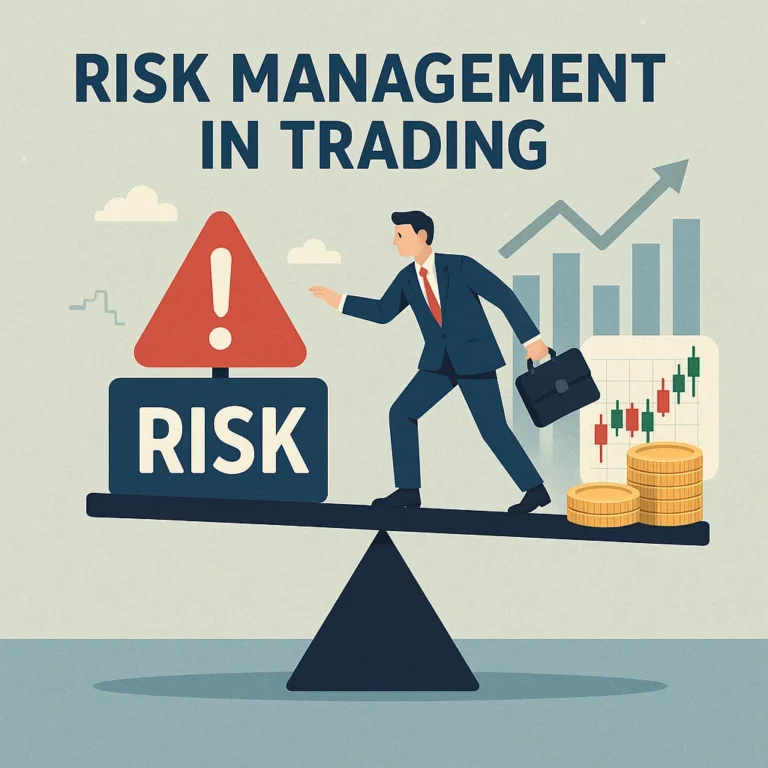What is FOMO in trading?
Understanding FOMO in Trading: How to Overcome the Fear of Missing Out
In the fast-paced world of trading, emotions often play a significant role in decision-making. One of the most common emotions traders face is FOMO — the Fear of Missing Out. Whether it’s a surge in cryptocurrency prices, a hot stock pick, or a trending market event, FOMO can cloud a trader’s judgment and lead to impulsive decisions. This article explores what FOMO is, how it affects traders, and strategies to overcome it.
What is FOMO in Trading?
FOMO in trading refers to the fear of missing a profitable opportunity in the market. It occurs when traders see others making substantial profits from certain trades or investments, and they feel an intense pressure to act quickly to avoid being left behind. This fear often leads to emotional, reactive trading, rather than following a disciplined strategy. FOMO can make traders deviate from their plan, chase trends, or enter positions without proper analysis.
How Does FOMO Affect Traders?
FOMO can have serious consequences for traders, both financially and psychologically. Here’s how it typically affects trading behavior:
- Impulsive Decisions: FOMO often leads traders to buy into a market or asset without conducting thorough research. This can result in entering a trade at the peak of a rally or in a highly overbought market, leading to poor entry points.
- Overtrading: The fear of missing out on every potential opportunity can lead to overtrading. Traders may feel the need to act on every movement in the market, leading to higher transaction costs, more risk exposure, and eventually burnout.
- Chasing Losses: Sometimes, FOMO can drive traders to enter high-risk trades in an attempt to recover previous losses, thinking they can get in “before it’s too late.” This can lead to even greater losses if the market moves against them.
- Lack of Strategy: FOMO often clouds a trader’s ability to follow a well-structured trading plan. This lack of discipline can turn a trader’s approach into a series of emotional reactions rather than a calculated process.
Why Do Traders Experience FOMO?
FOMO is rooted in human psychology, and several factors contribute to it in the trading world:
- Social Influence: With the rise of social media, online forums, and trading communities, traders are more exposed than ever to others’ successes. Seeing peers or influencers making huge profits can trigger FOMO and push traders to act impulsively.
- Fear of Regret: Traders often fear the regret of missing out on a potentially profitable opportunity. This feeling can be amplified when others seem to be benefiting from trades that the trader didn’t participate in.
- Volatility: The volatility of certain markets, such as cryptocurrencies or stocks, can create a sense of urgency. When prices are moving rapidly in one direction, traders may feel compelled to jump in before the market “runs away.”
- Confirmation Bias: Traders often seek confirmation of their own biases. If they see a trending asset or market, they may feel more inclined to jump in without critically analyzing the situation, simply because others are doing it.
How to Overcome FOMO in Trading
While FOMO is a common emotion in trading, it can be managed effectively with the right mindset and strategies. Here are some tips for overcoming FOMO:
- Stick to Your Trading Plan: Having a well-defined trading plan with clear entry, exit, and risk management strategies is essential. A good plan helps you avoid impulsive decisions and ensures you are acting based on logic, not emotions.
- Understand the Markets: Do your research and understand the fundamentals and technical aspects of the assets you are trading. Knowledge will help you make more confident decisions and reduce the fear of missing out on opportunities.
- Avoid Social Media Pressure: While it’s tempting to follow trends on social media or trading forums, it’s essential to avoid the influence of others when making trading decisions. Focus on your own strategy and avoid comparisons with others.
- Practice Patience: Trading isn’t about capturing every opportunity in the market. It’s about making well-informed decisions and waiting for the right setups. Practice patience and wait for high-probability trades that fit your plan.
- Limit Risk: One of the best ways to mitigate the effects of FOMO is to manage your risk properly. Use stop losses, position sizing, and risk-to-reward ratios to keep losses manageable and avoid large emotional swings.
- Accept That There Will Always Be Opportunities: The markets are filled with countless opportunities, and you can’t catch them all. Embrace the idea that there will always be new trades, and don’t let the fear of missing out push you to make rushed decisions.
- Reflect on Past Trades: Regularly review your trading history and reflect on past trades that were driven by FOMO. Understanding how those decisions played out can help you learn from mistakes and reduce the likelihood of repeating them.
Conclusion
FOMO is a powerful emotion that can negatively affect trading performance. It encourages traders to make emotional, impulsive decisions rather than sticking to a well-thought-out strategy. By recognizing the signs of FOMO and implementing a disciplined approach, traders can reduce its impact and make more rational, informed decisions.
Ultimately, overcoming FOMO in trading requires patience, self-awareness, and a commitment to a plan. Successful traders understand that it’s not about chasing every opportunity — it’s about making the right decisions at the right time.





